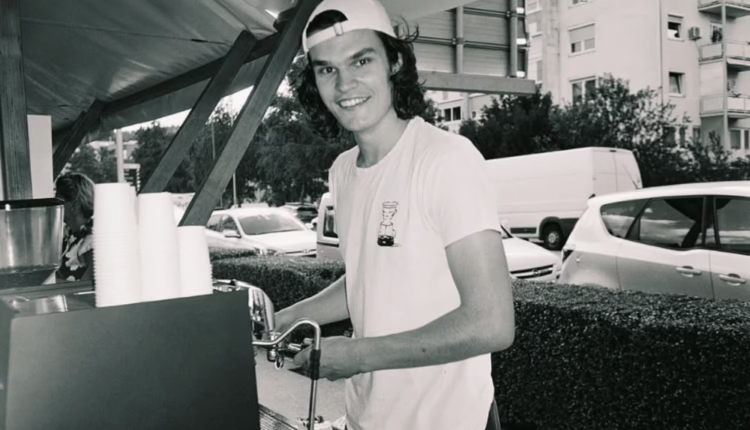10 Minutes With Luka Banovic—On the Philosophy of Roasting & Slovenia’s Evolving Specialty Coffee Scene
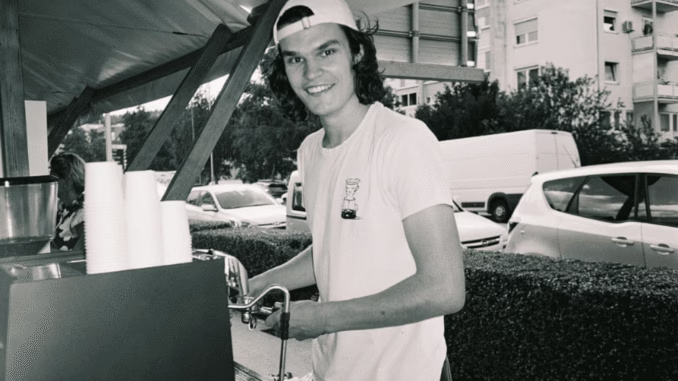
Luka Banovic launched his roastery, Banibeans, when he was just 17 years old. Today, he shares his progress since then—and what’s on the horizon.
BY VASILEIA FANARIOTI
SENIOR ONLINE CORRESPONDENT
Photos courtesy of Banibeans
I first met Luka Banovic at the Ljubljana Coffee Festival, where his Banibeans stand was drawing in curious visitors with clean, bright filter brews. Among all the roasters showcasing their work, his coffees stood out for their clarity and fruit-forward profiles.
What makes his story even more striking is how young he was when he got started. Luka founded Banibeans as a teenager, despite not even liking coffee at first. A single cup of specialty coffee changed his perspective completely and set him on a path that now has him roasting for both everyday drinkers and fine dining establishments.
We sat down to talk about how it all began, his roasting philosophy, the Slovenian specialty coffee scene, and what’s next for Banibeans.
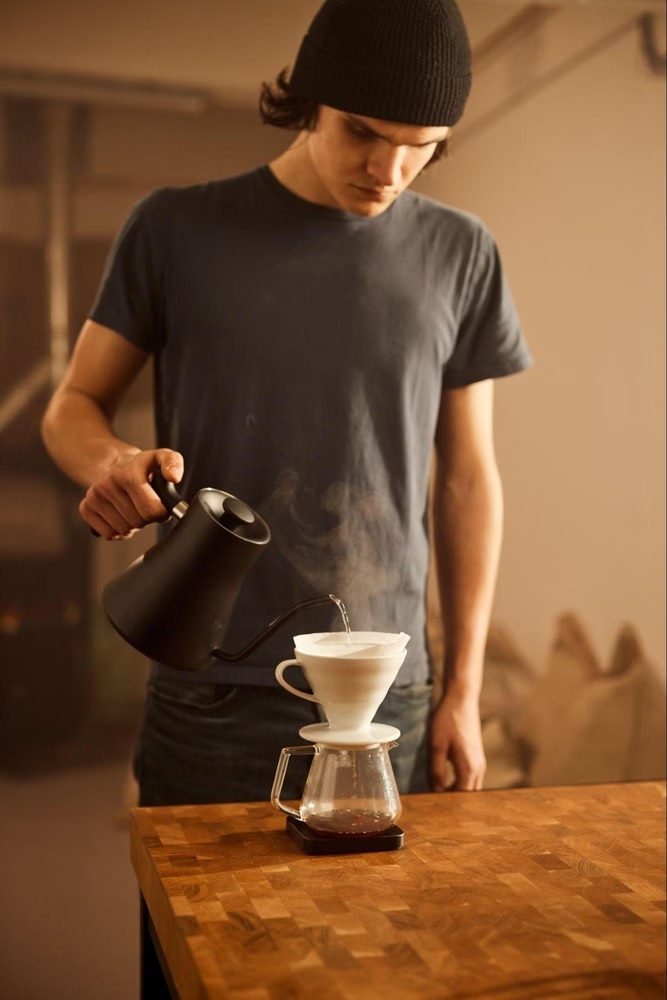

Vasileia Fanarioti: You started Banibeans at just 17! Can you tell us what initially drew you to specialty coffee, despite not being a coffee lover at first?
Luka Banovic: I remember I didn’t really like coffee at first—everything I tried was bitter and not enjoyable at all. My first specialty coffee was at Stow Coffee Roasters when I was 17. It was fruity and totally different from everything I knew about coffee. That was the moment I started exploring the world of specialty coffee.
Looking back, how has your journey with Banibeans progressed since those early days?
It started when I bought my first roaster, a 3kg drum gas roaster, when I was 17 or 18. I think my first roast was an Ethiopian natural, because I really liked Ethiopian coffees back then. At the beginning, my goal was just to make coffee taste fruity—I was mainly drinking espresso—and to make sure there was no bitterness. At first, I was buying cheaper coffees suitable for standard brewing. Now, I focus more on special coffees that shine with filter brewing, bringing a juicy and fresh cup.
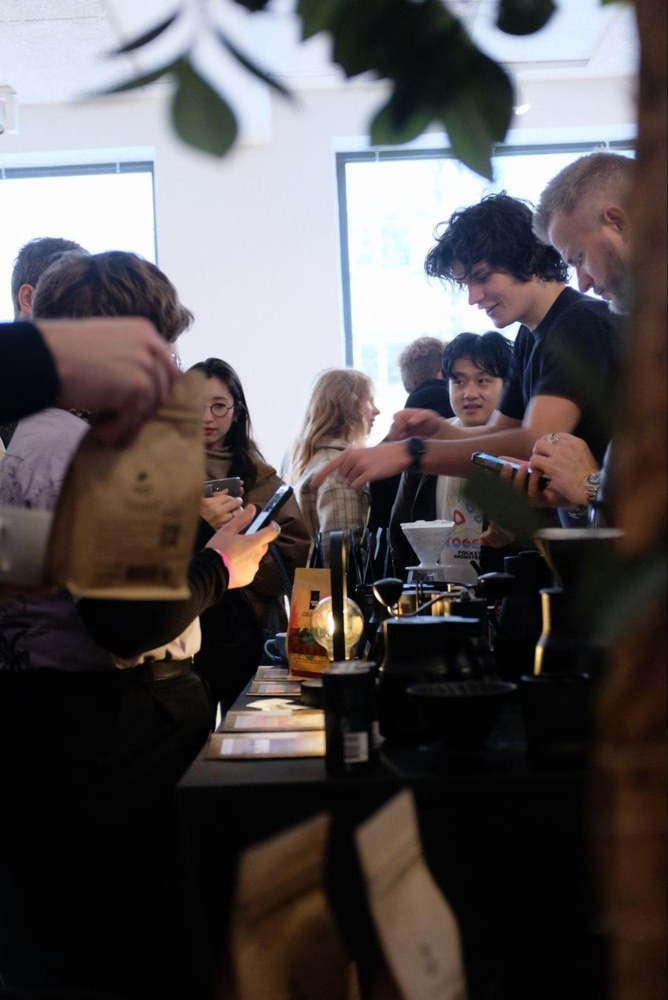

Your website emphasizes light roasting and a filter-focused approach. Why does this style matter to you?
I don’t think there’s one “right” roasting style, but for me, light roast is usually the best way to bring out the character of coffees for filter. My goal is that the cup has zero bitterness from roasting—that all the notes come from the coffee itself: its origin, its variety, its process.
You roast mainly for filter, but your coffees also work for espresso. How do you balance that versatility?
I do only one roast of each coffee. I don’t roast separately for espresso and filter. So yes, the roast is meant for filter, but it can make a beautiful, untraditional espresso. Probably not suitable for a classic 1:2 espresso, but they’re crazy good for longer shots—which I really like.
Slovenia doesn’t yet have an official SCA chapter. How would you describe the specialty coffee scene here?
True, there’s no official chapter, but the scene is strong. Especially in the last few years, we’ve done a lot of events and cuppings together. I’m sure there are competitors here who could do really well on the world stage, but unfortunately they can’t compete officially.
What do you see as the biggest challenges and opportunities for specialty coffee in Slovenia right now?
The biggest challenge is size. Slovenia is very small, and specialty coffee shops exist in only two or three cities. It would be much easier for the community to grow if we had more coffee spots across the country. I’m sure there are many passionate coffee lovers in smaller towns and villages, but they don’t have a place to meet fellow brewers and enthusiasts.
We heard that Milka’s head chef uses your coffee in their creations. What’s it like to see your coffee integrated into a fine-dining setting?
Honestly, it’s my biggest accomplishment in the last few years. Some of the world’s greatest chefs, who really know flavor, recognized my work and started using my coffees as part of their non-alcoholic pairings. Milka from Kranjska Gora and David, the head chef, have been using my coffees for two years now. I’m really proud of that. A year ago, my mom asked me what I was most proud of in 2024, and my answer was: my collaboration with Milka.
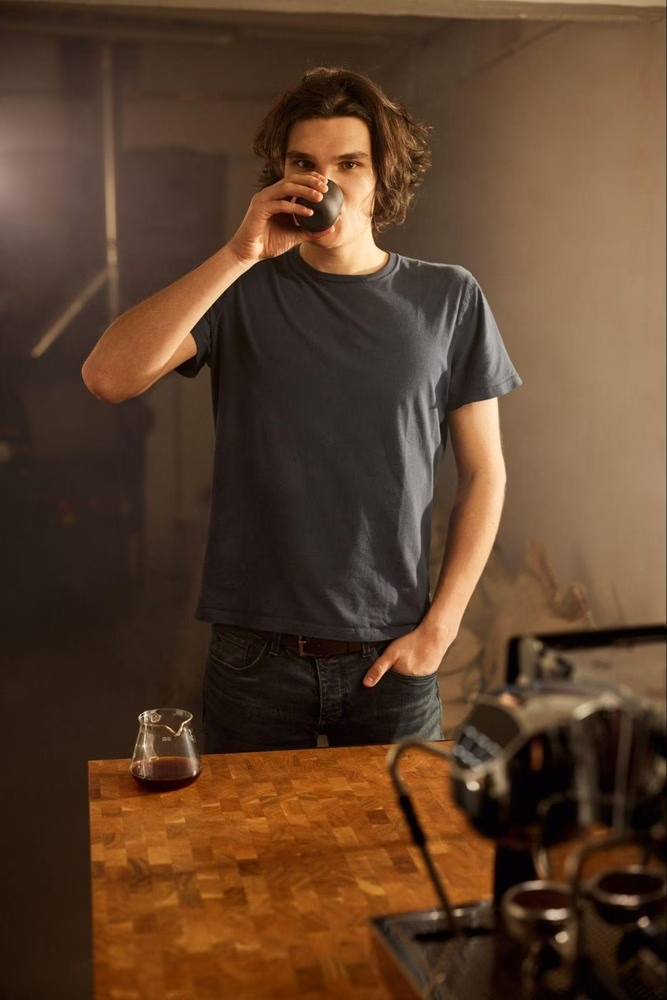


You also offer coffee catering. How do you approach creating unique experiences at events?
In Slovenia, coffee is usually just a morning beverage for caffeine. At events, I try to create a different experience by brewing coffee in new ways—like cold brew or filter—and showing people how diverse coffee can taste. Every event is unique, and I love being able to play with different coffees for different audiences.
Looking ahead, what are your goals for Banibeans? Any exciting projects or new coffees in the works?
My goal is to build a well-known brand for light, filter-focused coffee—something consistent and trusted, not necessarily big. I’m not aiming for a huge roastery, but for a brand people return to because of good past experiences. I change the coffee offering all the time, because I almost never buy the same coffee twice. That keeps it fresh and exciting.
ABOUT THE AUTHOR
Vasileia Fanarioti (she/her) is a senior online correspondent for Barista Magazine and a freelance copywriter and editor with a primary focus on the coffee niche. She has also been a volunteer copywriter for the I’M NOT A BARISTA NPO, providing content to help educate people about baristas and their work.
Subscribe and More!
As always, you can read Barista Magazine in paper by subscribing or ordering an issue.
Read the October + November 2025 Issue for free with our digital edition.
For free access to more than five years’ worth of issues, visit our digital edition archives here.
Source: Barista Magazine



